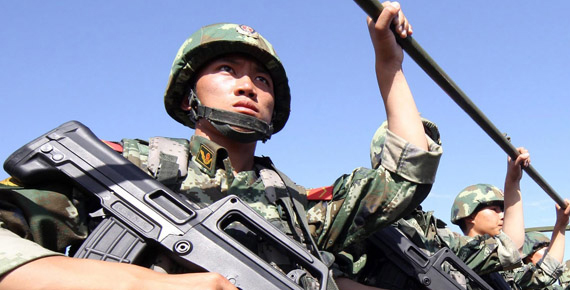The incidents that broke out last week in various parts of East Turkestan and the Beijing administration’s way of handling them have revealed once again the gravity of the situation. Among the most important reasons behind China’s attitude of denial, cruelty and no compromise in the region, where humanity plights take place, lays an extensive assimilation plan targeting the Uyghur Autonomous Region (East Turkestan) in order to solve the “Uyghur problem” and to use the region as a springboard to reach or take Central Asia and South Asia under its influence. In this angle, the “Uyghur issue” is a critical corner stone forChinato fulfill her foreign policy strategy on the immediate surroundings along with reinforcing her authoritarian dominance and territorial integrity. The transformation inChina’s way of handling this issue in the last 20 years clearly reveals the situation.
The Uyghur issue is one of the most important problems of the People’s Republic of China since the end of the Cold War as the country has turned economically richer and more ambitious about having a voice in international politics during the last two decades. Ethnic conflicts in different parts of the world became a key factor in the Chinese perception of the “Uyghur issue” in the 1990s. In that period, foreign policy and defense bureaucracy ofChinaunder the influence of the “Balkanization” paranoia had begun to approach all ethnic and social problems inEast Turkestanas the product of external powers. In particular, the international intervention in Kosovo had almost caused a trauma inChina.
THE IMPORTANCE OF EAST TURKESTAN INCREASES
As the economic growth gradually increased in China towards the end of the 1990s, the economic importance and meaning of East Turkestan came up to the agenda more frequently. In particular, underground sources of the region had gained special significance because they were one of the energy sources for the product-oriented Chinese industry. Although China tried to manage the trade mainly in the Southern regions where economic initiatives took place, emerging new markets and rich natural gas and oil fields in the Republics of Central Asia had become quite critical – especially after their declaration of independence – for China; a country that had been dependent on outside sources since 1993 and believed that it had retarded to dominate the sources in the Middle East.
Throughout the 1990s, East Turkestan’s political and economic importance for China increased while China promoted obstructive maneuvers in order to take the region under control completely and to prevent problems. In this particular period,China, with the revised perception of threat, had launched “fierce coup” operations and campaigns against “terrorism, separatism and fundamentalism” inEast Turkestan. The aim was the immediate elimination of every individual or group who would jeopardize political and economic policies ofChina. During the same years,Chinahad also carried the fight with the Uyghur issue to the international platform. First,Chinahalted the Uyghur activities in the Republics of Central Asia through an array of agreements, and managed the extradition of Uyghur refugees in these countries. The Shanghai Quintet, the core of the Shanghai Cooperation Organization, was formed in such an environment to find a regional oppression policy against the Uyghurs and a solution for the border conflicts.
The 9/11 attacks became one of the most critical turning points with regard to the Uyghur issue. The Chinese administration oppressing the whole Uyghurs through the “fierce coup” operations in the region until 2001 was one of the first countries to jump on the bandwagon to join the US’ global counter-terrorism efforts. The Chinese officials who were working for the introduction of East Turkestan as the center of peace, calm and prosperity a month before the 9/11 attacks suddenly began to claim t


